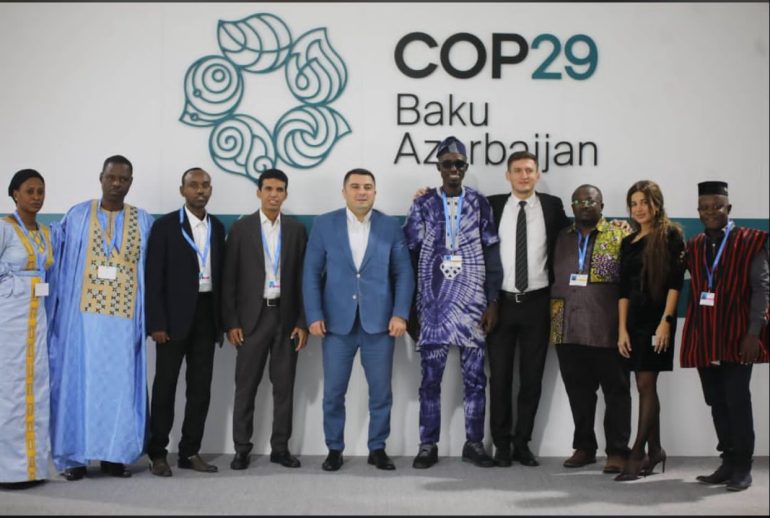November 19, 2024
By Samuel Ogunsona
African environmental stakeholders made a powerful plea for collective action towards a sustainable, just, and equitable future, free from the lingering effects of colonialism.
The call was made at the ongoing 29th Conference of the Parties (COP29) of the United Nations Framework Convention on Climate Change in Baku, Azerbaijan.
At a side event themed, “Solidarity for Decolonization and Green Future,” organized by the Baku Initiative Group, speakers from historically colonized African countries, including Kenya, Cameroon, Zambia, Mali, Nigeria, Djibouti, Togo, Mauritania, Zimbabwe, and the Democratic Republic of Congo, shared their experiences.
They emphasized that colonialism has left deep scars across Africa, manifesting in environmental degradation, land disputes, and socio-economic disparities.
Dr. Uzodinma Adriejie, Chief Executive Director of the Afro Optonet Association (AHOA), stressed the need for inclusive collective action, envisioning a future where neo-colonialism is eradicated and relations between states are built on mutual respect.
“We envision a future of sustainable environments where any trace of neo-colonialism, often perpetuated by locals continuing the practices of colonial masters, is eradicated. Relations between states must be built on mutual respect,” he said.
Agbavito Koku Selom from Togo highlighted the lingering impact of colonial borders.
Also speaking, Dare Akogun, an environmental journalist, emphasized the importance of including affected communities in crafting solutions.
Akogun advocated for building partnerships to empower nations to thrive in harmony with the planet, ensuring a truly decolonized and green future
“It is vital to listen to the voices of those who bear the brunt of historic injustices. Solutions to our global crisis must not exclude them.
“This is not just about reparations. It is about forming partnerships like this that ensure the scars of colonialism are not passed down to future generations, enabling a truly decolonized and green future,”Akogun added.
Leyla Naghiyeva, Advisor to the Executive Director of the Baku Initiative Group, reiterated the organization’s commitment to combating climate change through collaboration and innovation.
“Today’s event reflects our commitment to a cleaner, greener, and more sustainable future. We will continue to advance efforts through policy innovation,” she said.
The event featured a documentary screening and an exhibition showcasing the negative impacts of France’s nuclear tests in African countries. Participants urged stakeholders to translate conversations into actionable steps, addressing the environmental and socio-economic challenges African nations face.
The call for solidarity served as a reminder that building a just, equitable, and sustainable future requires dismantling colonialism’s remnants while empowering communities most affected by climate change.
